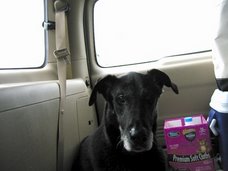The best way to learn about American history is to experience it first hand. If you drive through the countryside, walk in the woods, taste the local food, and listen to the music, you'll see that they're all related.
History is steeped in the stuff you can see out the side windows of a minivan. Cultural history happens in response to natural history: the Mississippi river cuts a new course daily, creating extremely fertile, but unstable farmland. The fish in the river and crops in the fields are what end up in the cook pot. And the seasonings reflect the climate. The music evolves in response to the daily life. Simply put, when you feel the humidity, taste the gumbo, and listen to the Dixieland Jazz, the natural history and cultural essence of New Orleans makes sense. Geology and biology dictate cultural evolution, and when you see what's happening on a big scale, the little stuff is even cooler. The shape of the barns makes sense.
And all that stuff, put into perspective, gives kids things to look at and think about as you drive through the countryside.
Before and during your road trip, learn about how the place was formed. Discover how that form influenced the local history and heroes. Who were the folk legends and what songs that grew out of those legends?
How did the Rocky Mountains form?
Why are lobsters so grumpy?
How does water get from the ground all the way to the top of a Redwood tree?
Can sink holes eat cars? How?
How about the Appalachian Mountains, how did they form, how did they influence the way the civil war was fought? How did they influence the way of life in Appalachia, and the evolution of southern music, cuisine, and whisky-running (and therefore, muscle cars)?
The answers may just make road trips more fun.
And you may notice the level of conversation with your kids kicking up a notch (Bam! Bam!)
Make Learning Fun on a Family Road Trip
Subscribe to:
Post Comments (Atom)





No comments:
Post a Comment